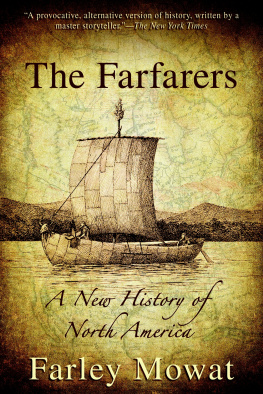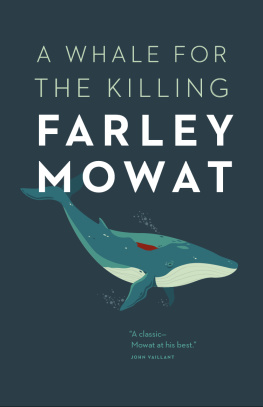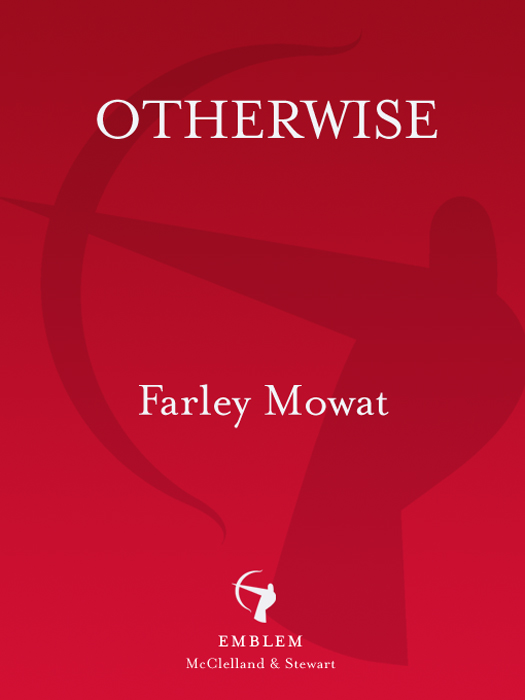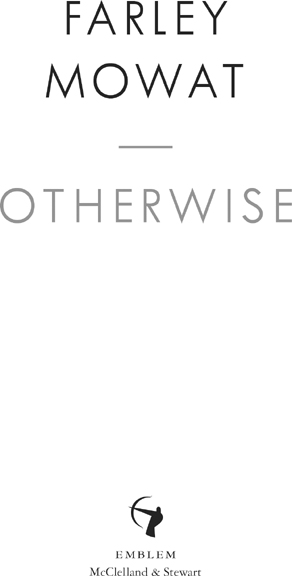AUTHORS NOTE
This book is a memoir of my life between early 1937 and the autumn of 1948, excluding my descent into the black horror of the Second World War. Essentially it is a story of discovery that goes to the heart of who, and what I am. It may well be my last hurrah.
Because Ive always written books drawn from my own life and experiences, some sections of Otherwise inevitably revisit parts of my life that have appeared in greater detail in earlier works, notably And No Birds Sang, Never Cry Wolf, No Mans River, The Dog Who Wouldnt Be, and Born Naked. I make no apologies. This book overlaps these in time, and seminal incidents in ones life inconveniently remain so.
PART ONE
BEFORE THE STORM
193742
1
THE LAST BEST WEST
B orn in mid-May 1921 lilac time in the small town of Trenton on the northern shore of Lake Ontarios Bay of Quinte I spent my early years messing about in swamps, woods, and farmyards; falling in and out of boats; and surviving in various decrepit houses while establishing fundamental relationships with such disparate beings as snapping turtles, portly spiders, rapier-billed herons, honeybees, a bear who visited me in dreams, Charlie Haultains silver foxes, crayfish and eels, water snakes along the Murray Canal, a passel of mongrel dogs, and Beatrix an enormous earthworm who lived through an entire winter in a tin can by my bedside.
When I was eight we moved to Windsor, a grungy industrial city given over to the manufacture of cars and rye whiskey. This move brought about a severe disruption of my universe; never theless I was able to find natural companions even here. These included a black squirrel named Jitters; a toothy but chummy baby crocodile (gift of a relative in Florida); an enormous and complacent toad who lived under our back porch; gorgeous luna and cecropia moths as large as a human hand whose caterpillars I reared in glass jars until they metamorphosed and I could let them fly to freedom; and Hughie, son of a vagrant victim of the Great Depression, who was so en amoured of grass snakes that he got himself expelled from school for carrying writhing knots of them in his pockets.
Some people felt that Helen, my raven-haired, dark-eyed beauty of a mother, and Angus, my dapper, sinewy father, were recklessly permissive in letting me consort so freely with creatures of such questionable status. But because she possessed infinite faith in a protective providence Helen did not fear for my safety. And Angus was of the opinion that broadening ones associations with animate creation and taking chances were essential to a well-rounded life.
He was so convinced of this that in 1933, just when the worldwide economic meltdown known as the Dirty Thirties was at its worst, he abandoned a secure position as Windsors chief librarian to accept a similar job at half the pay in distant Saskatoon, Saskatchewan. Similar, but by no means equivalent, for the desiccated prairie town had been so battered by the Depression and by several years of blistering drought that many of its residents were on relief and the town was all but bankrupt.
Years later, when I inquired why he made the move, my father seemed surprised.
Well, you see, Saskatchewan was a dust bowl by then, barely able to afford to feed its human inhabitants. Nothing much left over for the mind, you understand. Library services had all but collapsed just when people needed books as never before. I couldnt bring them bread but, by Heaven, I could at least help them get books to ease the misery a bit. And then too, what an opportunity it was for the three of us to explore new horizons and perhaps learn a little something about how others lived.
A generation earlier the Great Plains had been devastated by steel-shod plows in the hands of modern men, but had not as yet been utterly laid waste. Although most of the larger natural inhabitants, including bison, grizzly bears, antelope, wolves, whooping cranes, trumpeter swans, and aboriginal people, had been exterminated or reduced to vestigial remnants, a wealth of life still survived even within Saskatoons city limits. And where the city gave way to the remnant prairies the world of the Others remained in full and vital ferment. This was my entire world during the years between 1933 and 1937, although I did make one singularly exhilarating foray beyond it one which was of crucial importance in shaping my future.
My passion for the Others had brought me to the notice of Frank Farley, a great-uncle on my mothers side. In 1882, at the age of twenty, Frank had left his familys farm in Ontario and gone homesteading in the Golden West, where he broke several hundred acres near Camrose, Alberta, and farmed them to such good effect that when he retired almost fifty years later, he was wealthy enough to indulge his lifelong fascination with birds. A self-made naturalist in a tradition that sanctioned and encouraged killing wild animals with such avidity that many species were literally pursued to extinction, Franks specialty was birds eggs. By the 1930s, he had amassed such an enormous and varied collection that he was accounted one of Canadas outstanding scientists.
Although he and I had never actually met, the far-flung family net had informed him of my fascination with wild creatures. In January of 1935, he wrote my parents proposing that, come spring, I accompany him on an expedition to Hudson Bay to collect the eggs of arctic birds, a project in which a quick young fellow could be of great assistance. This proposal was as entrancing to me as the offer of a trip to the moon might be to a youngster of today. My parents, bless them, acquiesced without demur and so it was arranged that Frank would pick me up on June 5, a little more than three weeks after my fifteenth birthday.


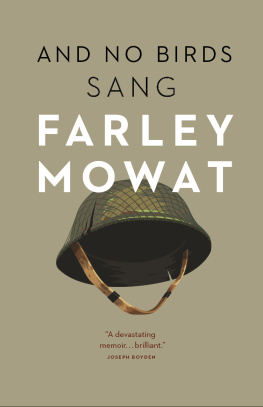
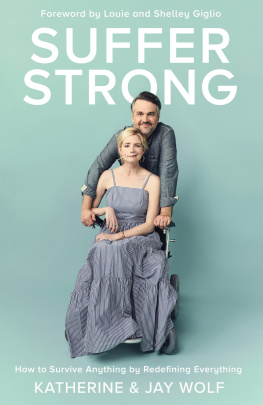
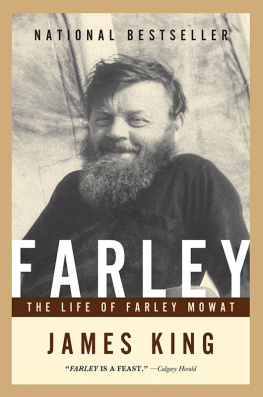
![Farley Mowat - People of the Deer [Paperback]](/uploads/posts/book/52958/thumbs/farley-mowat-people-of-the-deer-paperback.jpg)
